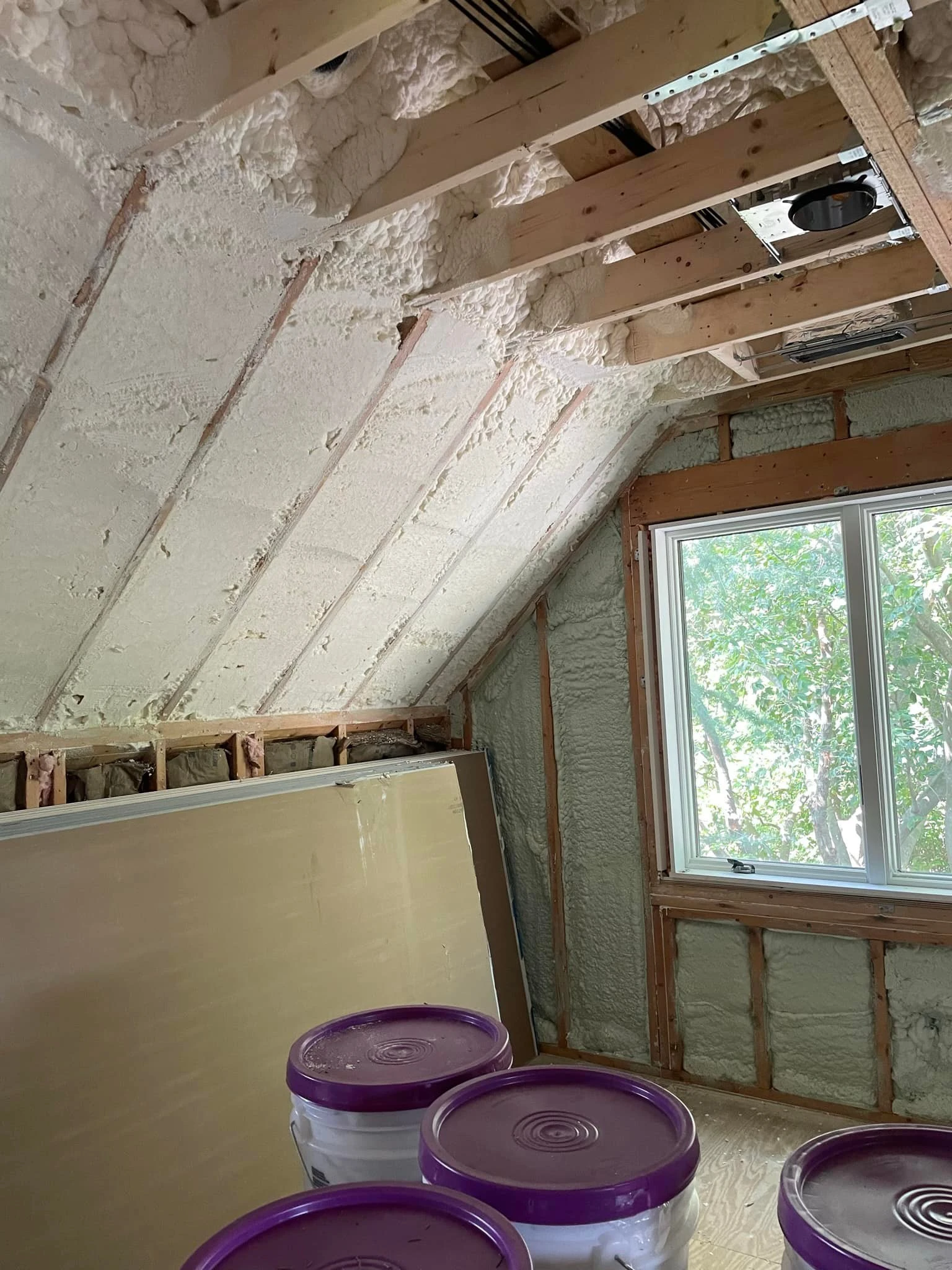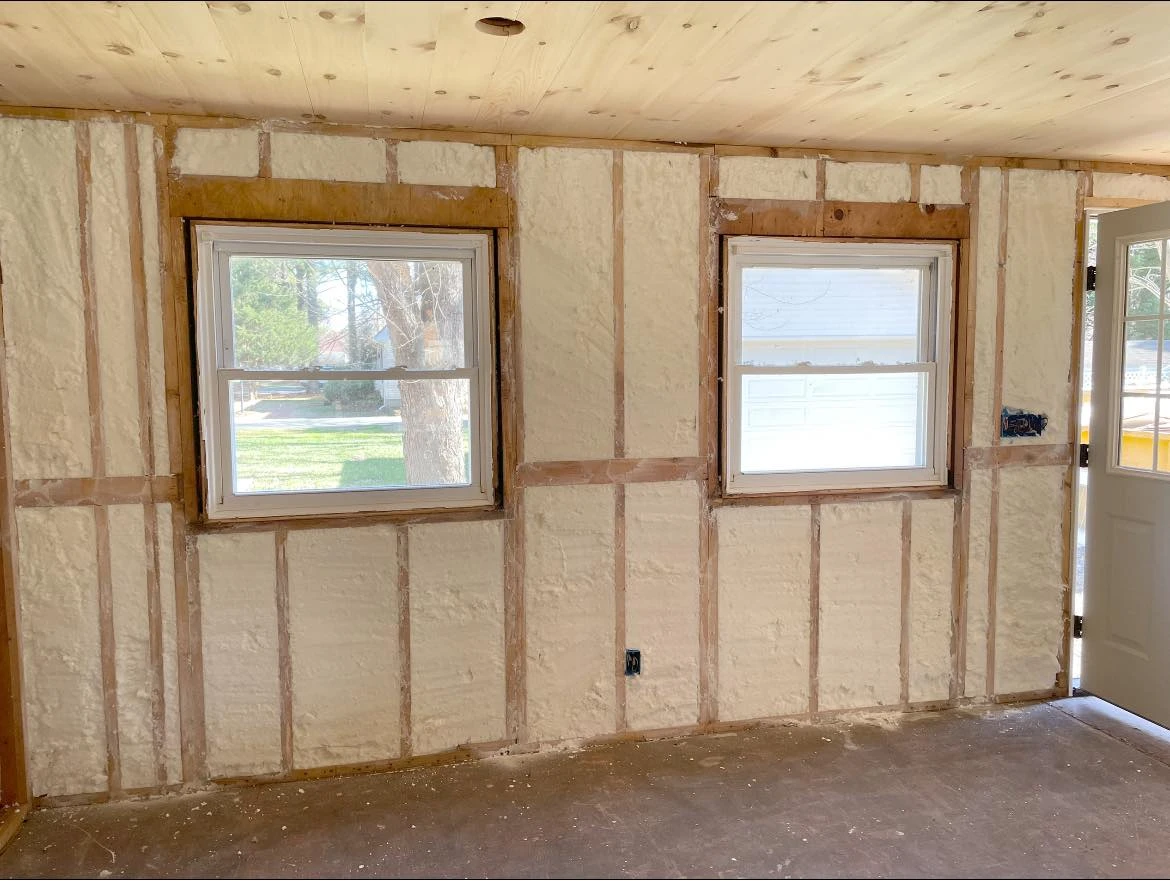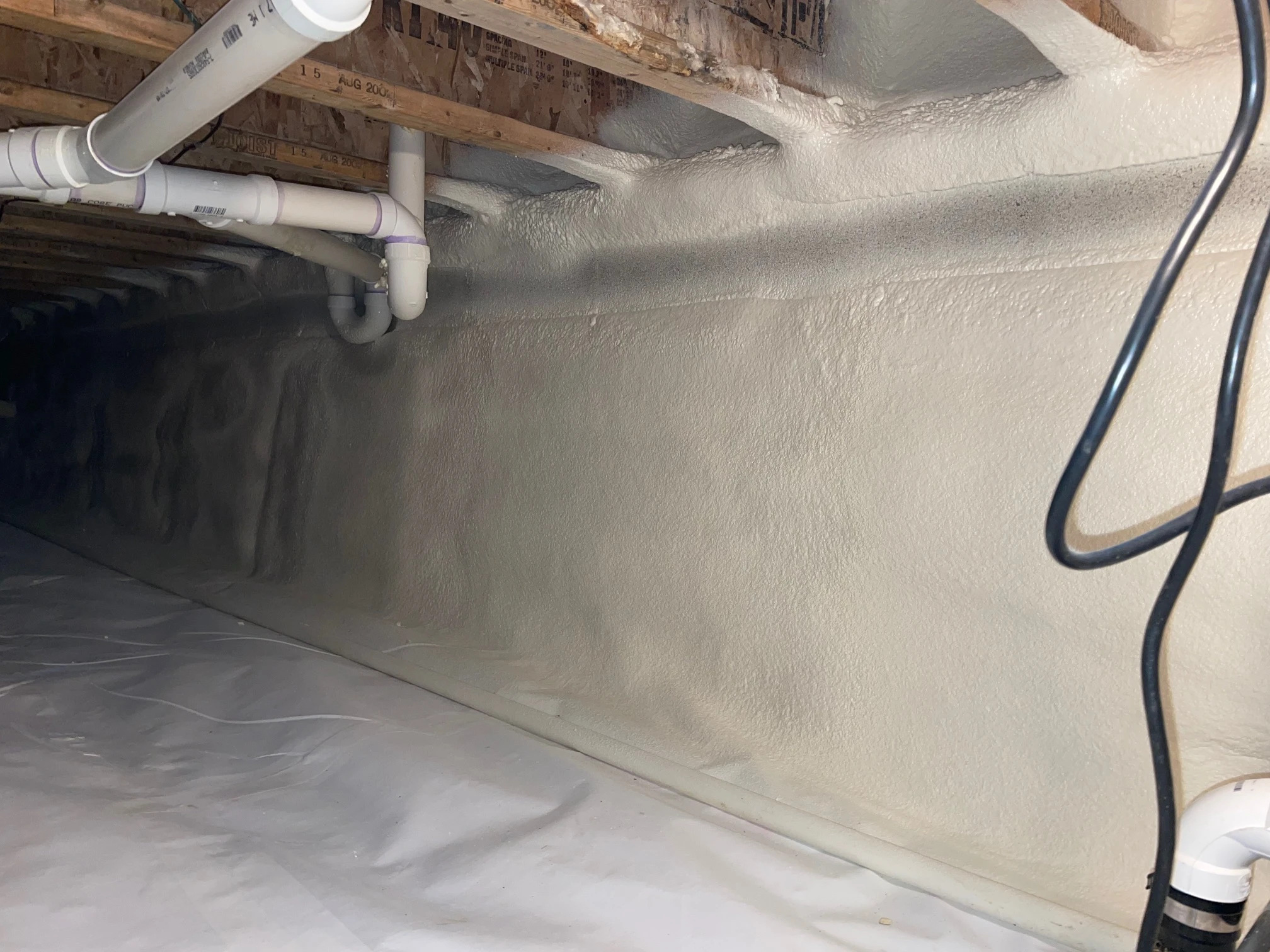
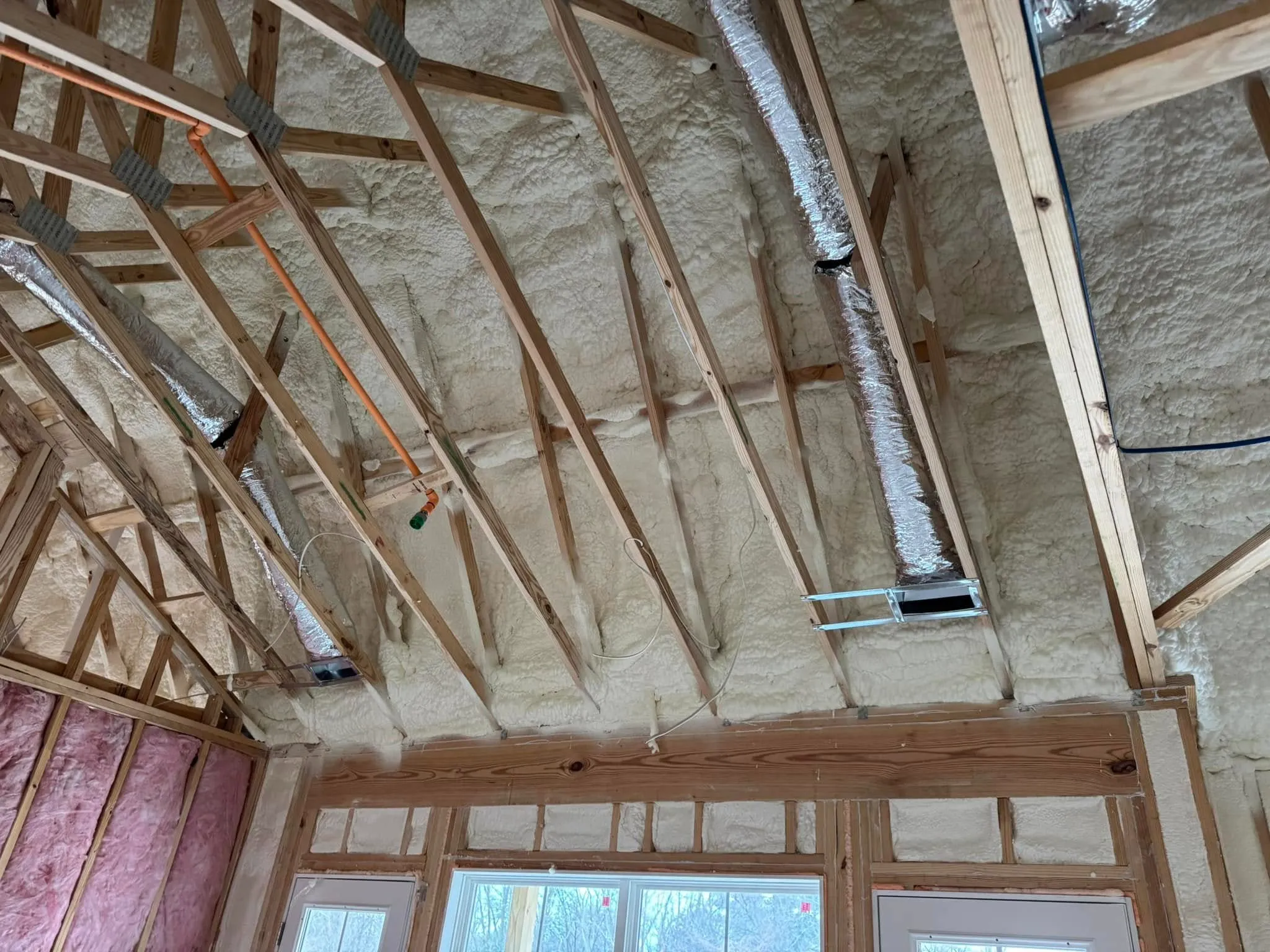
Cold floors in Annapolis properties often stem from poor insulation, especially under slabs or in crawl spaces. Heat escapes quickly through uninsulated areas, pulling warmth from the home and leaving surfaces chilly even when the thermostat reads comfortable temperatures. This issue shows up more in older homes built before modern energy standards took hold.
This article breaks down the causes, signs, and fixes for cold floors, with a focus on Annapolis’s coastal climate. This guide provides clear steps based on years of local experience to identify and resolve these issues. The details come from years of on-site work with local homes, spotting patterns in how insulation affects daily living.
Annapolis sits along the Chesapeake Bay, where winters dip below freezing and humidity lingers year-round. Without enough insulation, floors lose heat to the ground or outside air. Concrete slabs make direct contact with soil that stays cold, while wood floors over uninsulated joists let drafts creep in.
A report from the U.S. Department of Energy shows that homes with low insulation use up to 20% more energy for heating. In Annapolis, this hits hard during January’s average lows of 30 degrees Fahrenheit.
Bonus Tip: Check for gaps around pipes or vents under the floor; these act like open doors for cold air and often need sealing first.
Feel persistent chill underfoot, even with rugs down? That’s a top clue. Other hints include higher utility bills despite steady thermostat settings and visible drafts near baseboards.
In one local case, a 1950s bungalow showed cold spots in the kitchen. Lifting a corner of the flooring revealed bare subfloor with no barrier to the crawl space chill. Maryland’s building codes now require R-19 insulation in floors, but many older spots fall short.
Insulation traps heat by slowing its transfer. Materials like rigid foam boards or spray foam fill gaps and create a thermal break between the living space and the cold ground.
Data from the Insulation Institute indicates that adding floor insulation cuts heat loss by 50% in slab homes. For Annapolis properties, this means warmer steps on winter mornings and better overall efficiency.
Different setups suit various home styles. Here’s a table comparing common options:
| Material | R-Value per Inch | Best For | Cost Range (per sq ft) | Notes for Annapolis |
|---|---|---|---|---|
| Rigid Foam Boards | 5-6 | Slab foundations | $1-2 | Resists moisture in humid areas |
| Spray Foam | 3.5-7 | Crawl spaces | $2-4 | Seals air leaks effectively |
| Fiberglass Batts | 3-4 | Wood joists | $0.50-1.50 | Affordable but needs vapor barriers |
This setup helps pick the right fit based on home type and budget.
Bonus Tip: Opt for moisture-resistant types in coastal zones; Annapolis’s bay proximity brings extra dampness that can degrade standard materials over time.
Building on the winter challenges and year-round humidity already mentioned, local weather swings amplify insulation needs. Summers hit 85 degrees with high humidity, but winters bring freezes that chill ground temperatures to 40 degrees or lower, per NOAA records.
Uninsulated floors absorb this cold, making homes feel drafty. A study by the Chesapeake Bay Program notes that regional homes lose significant energy through floors due to these patterns.
Homeowners notice the difference in energy use; insulated floors keep indoor temps even, reducing heater runtime.
Assess the home’s age and foundation type first. Older Annapolis colonials often have raised floors over crawl spaces, while newer builds use slabs.
Budget plays a role: basic fixes cost $1,000-$3,000, but factor in energy savings that pay back over 5-7 years. Check for other issues like moisture buildup, which insulation can worsen if not addressed.
Get a professional inspection to measure current R-values and spot hidden problems. Local codes require permits for major work, so plan ahead.
Weigh long-term comfort against upfront costs; in humid areas, poor choices lead to mold risks.
Bonus Tip: Test floor temps with an infrared thermometer before changes; it reveals hot and cold zones quickly.
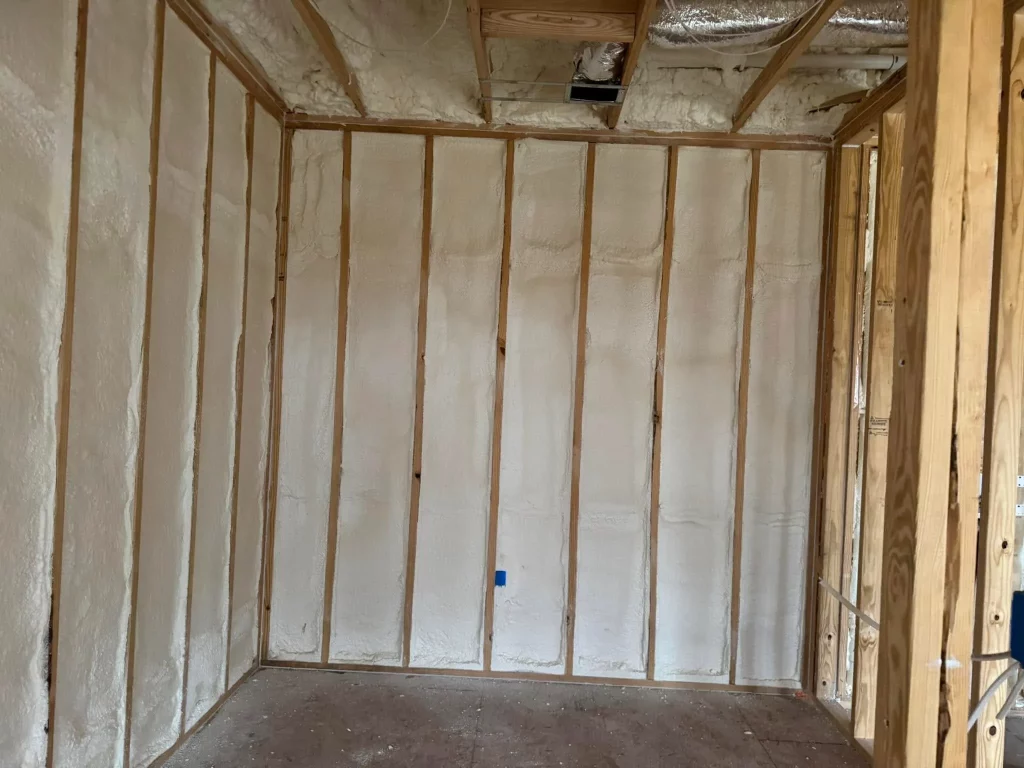
Many Annapolis residents ask about quick fixes for cold floors. One approach involves area rugs with thick pads, but they only mask the issue. True relief comes from addressing the root cause underfoot.
Another question focuses on DIY options. Sealing small gaps works for minor drafts, yet full insulation demands tools and safety gear best left to experts.
Yes, it boosts efficiency and appeal. Appraisers note that updated insulation can add 2-5% to resale prices, based on local market trends.
Quality installs endure 20-50 years. Factors like moisture shorten life, so choose durable options for bay-area homes.
It evens out heat loss, but structural issues might need separate attention. Combine with air sealing for best results.
Landlords gain from lower bills, and tenants enjoy comfort. Short-term renters might push for landlord action.
Look at windows or doors next; multiple leaks compound problems. A full energy audit pinpoints remaining gaps.
Lack of insulation directly causes cold floors in many Annapolis homes, worsened by local winters and humidity. Spot signs like chills and high bills early, then choose suitable materials from the options above. Evaluate foundation and climate needs before changes to ensure lasting warmth.
Take time to inspect your property and match solutions to specific setup. Focus on goals like comfort and savings for the best outcome.
Cold floors drain comfort and efficiency in Annapolis homes. For expert guidance on insulation checks, contact Peninsula Insulation, LLC at (410) 770-2624 or wil@mdsprayfoam.net. Schedule an assessment to fit your property’s needs and start seeing improvements soon.

